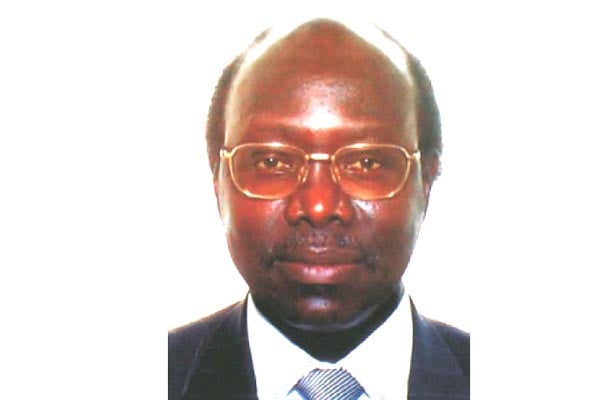Anatomy of a diplomatic fiasco

Author: Harold Acemah. PHOTO/FILE
On February 18, a powerful delegation of European Union (EU) ambassadors met Sabalwanyi at State House Entebbe to discuss increasingly frosty relations between Uganda and the EU, our leading development partner and destination of exports. The meeting was attended, inter alia, by Prime Minister Ruhakana Rugunda, Foreign Affairs minister Sam Kutesa, his junior Henry Oryem Okello and Foreign Affairs permanent secretary Patrick Mugoya.
In diplomatic parlance the two sides had frank deliberations. I was stunned by a video footage of the same broadcast on UBC-TV. It was clearly an embarrassing and uncomfortable meeting to attend, especially for a career diplomat like Ambassador Mugoya. The meeting was virtually a war of words bordering on a diplomatic fiasco.
According to a story published in Daily Monitor of February 19 titled, ‘Keep out of matters you don’t understand, Museveni tells EU,’ Sabalwanyi cautioned the envoys against involvement in matters they are not conversant with. It sounds more or less like a stern and final warning by a headmaster to some unruly secondary school students.
During the meeting the EU ambassador asked Sabalwanyi a question which appears to have touched a raw nerve. He asked, “… very often we are presented as enemies, is it so?”
Sabalwanyi replied that we don’t see the EU as enemies. “The problem I see in the West really, you have two problems now and that is why you waste our time. Because there is nothing that we don’t know - either in Africa or in the world, so but what I see on your side you seem not to have enough information. You seem to have two problems - you seem to have some deficit in philosophy, but also deficit of information.”
“By involving yourselves in matters which you don’t understand well… even if you had good understanding, it would not be in order for you to involve yourself… this kind of misconduct, mishandling can lead to very serious consequences like in the case of Congo,” he was quoted to have said.
EU’s relations with 78 ACP countries, including Uganda, Kenya and Tanzania are governed by the Cotonou Agreement signed in 2000 and revised in 2005 and 2010 which replaced the Lome Convention of 1975. Under the Cotonou Agreement EU and ACP countries are committed to promote good governance and respect for human rights and fundamental freedoms in accordance with the Universal Declaration of Human Rights (1948) which Uganda is party to since joining the United Nations in 1962.
To say that the EU is interfering in Uganda’s internal affairs is a function of ignorance of Uganda’s treaty obligations and poverty of the mind. With regard to “serious consequences” the EU was warned about, ask Zimbabwe whose economy has collapsed as a result of sanctions imposed by the EU on former president Mugabe’s regime in 2002.
When I served at the Embassy of Uganda, Brussels from 2003-2008, I was for two years chairman of the ACP committee on sanctions. The committee tried its level best to convince the EU to lift sanctions against Zimbabwe because ordinary Zimbabweans were suffering most from the negative effects of sanctions rather than the corrupt and decadent ZANU ruling clique.
Much as EU diplomats empathised with our concerns at joint meetings, EU’s political leaders were adamant because the primary target of the sanctions was Mugabe and his cronies, including current president Emmerson Mnangagwa of that beleaguered and miserable country.
With all due respect, Sabalwanyi has done enormous damage to Uganda’s foreign policy, diplomatic service, national image and national prestige. It will take many years of concerted efforts and diplomatic work to repair the damage the corrupt, decadent and incompetent NRM regime has done to Uganda’s relations with EU and many other countries, but given ethical, honest, patriotic, selfless and wise leadership, it can be done. Uganda deserves better.
Mr Acemah is a political scientist and retired career diplomat.
[email protected]




